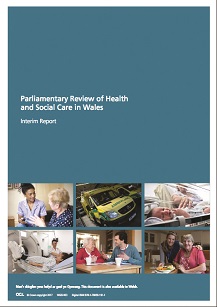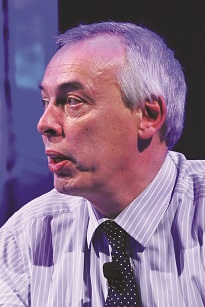News / News review - September 2017
The NHS continued to create headlines this summer, often with familiar stories. Perhaps the most high profile was in late August, when Stephen Hawking and health secretary Jeremy Hunt clashed over the NHS’s future.
Professor Hawking (pictured) said he was concerned the NHS was slipping into a US-style insurance system and believed there was increased private provision – including the use of agency staff. ‘The more profit is extracted from the system, the more private monopolies grow and the more expensive healthcare becomes. The NHS must be preserved from commercial interests and protected from those who want to privatise it,’ he said. Mr Hunt said it was a ‘pernicious falsehood’ that the government wanted a US-style insurance system.

The cost of continuing healthcare (CHC) has been a worry for years and, according to the National Audit Office, the number of people in England assessed as eligible for CHC is rising. Between 2011/12 and 2015/16 the numbers eligible for funding increased from 125,000 to 160,000, it said, while spending on CHC between 2013/14 and 2015/16 rose by 16%. A report, Investigation into NHS continuing healthcare funding, said CHC accounted for 4% of CCG spending in 2015/16. It added that NHS England wants to make £855m of savings in CHC spending by 2020/21 – through administrative savings, reducing variation in spending and greater consistency in CCG interpretation of eligibility criteria. However, to date, it had not set out a costed breakdown of how it would deliver savings in the cost of care, the NAO added.
The cost of clinical negligence – another well-trodden line – was also highlighted. NHS Resolution (the new operating name for the NHS Litigation Authority) said it paid more than £1bn in damages to claimants in 2016/17– a 14% rise on the previous year, and despite a 2.5% fall in the number of new clinical negligence claims. The rise in compensation is partly due to payments for claims initiated in previous years. The amount paid to claimants’ lawyers continued to rise, it said – up by 19% to almost £499m.
Local authorities are planning to cut public health budgets by around £80m this financial year, according to the King’s Fund. Analysing figures from the Department of Communities and Local Government, the fund said, on a like-for-like basis, councils plan to spend £2.52bn on public health this year, compared with £2.6bn in 2016/17. The fund said cuts included a £30m reduction in sexual health service budgets, £22m less on tackling drug misuse in adults and a £16m reduction in smoking cessation services.
The UK exit from the EU is set to dominate news and will affect the NHS. In July, the Brexit Health Alliance – a group of 15 NHS organisations and pressure groups – outlined its five priorities for UK healthcare in the negotiations to leave the EU. The group includes medical royal colleges, industry bodies, NHS Providers and the NHS Confederation. The priority areas are: achieving maximum levels of collaboration on research and innovation; ensuring regulatory alignment to support better population health; preserving reciprocal healthcare arrangements; delivering robust co-ordination of health and wellbeing mechanisms; and securing a strong funding commitment to health and public health sectors.
The reverberations from this year’s general election are also being felt. The deal struck by the Democratic Unionist Party and Theresa May’s Conservative government brought much-needed funding for Northern Ireland, including at least an extra £250m for local health and social care this year and next. But the need is also great in Wales and Scotland and those nations’ governments have opened a formal dispute resolution process over their right to receive extra funds following the DUP deal.
The Scottish and Welsh governments said they should receive consequential funding as a result of the deal. If the Barnett formula was applied, Wales would receive an additional £1.67bn and Scotland £2.9bn, they said.
The NHS in Wales must develop 
new models of care and streamline governance, finance and accountability arrangements, says the interim report of the Parliamentary Review of Health and Social Care. The review said the new models should enable primary, secondary, community and social care services to work together more effectively, and there should be a focus on continuous quality improvement and prevention. The final report is due by the end of the year.
A reduction in prescriptions for ineffective, over-priced and low-value treatments has been targeted by NHS England. The commissioning body launched a formal public consultation on draft national guidelines, drawn up with GPs and pharmacists. The guidelines say 18 treatments – which cost taxpayers £141m a year – should generally not be prescribed, including homeopathy and herbal treatments. It suggests limiting prescribing products for minor conditions such as cough mixture and cold treatments, eye drops and laxatives. Prescriptions for these self-limiting conditions currently cost taxpayers £50m-£100m a year.
In August, Wales health secretary Vaughan Gething said a £50m funding package will help the local NHS target improvements in waiting times for elective surgery, diagnostics and therapies. He said demand for hospital services had risen by 20% in the past five years. Though referral to treatment indicators had improved in the past two, further gains were needed. He also announced an extra £1m for end-of-life care.
The Scottish government will end the 1% public sector pay cap from the 2018/19 pay round. In a letter to chancellor Philip Hammond, Scottish finance secretary Derek Mackay said he would work with unions to develop a public pay policy that reflected inflationary pressures and affordability. Some uplifts, such as for the NHS, are set at UK level and Mr Mackay urged the chancellor to lift the cap.
Meanwhile, the Senior Salaries Review Board said executive and senior managers in the Department of Health arm’s length bodies (ALBs), should receive a 1% pay rise. The report said that, with limited data, there does not appear to be a problem with recruitment to the ALBs, but failure to make an award averaging 1% could have a detrimental effect on morale during a highly challenging time for the NHS.

Former Department of Health director general, finance, Richard Douglas (pictured) is now the interim chair of NHS Improvement. The appointment will be until the end of the calendar year or until a substantive chair is appointed, whichever is sooner.
NHS Employers warned that staff incentives such as prize draws to increase flu vaccination uptake could be seen as inappropriate use of public money. Incentives are suggested in a NICE draft consultation. But NHS Employers said a more appropriate incentive would be offering vaccinations in developing nations in return for getting the flu jab.
Quotes

‘Our review highlights the extent of the financial
challenge negligence presents to the NHS. By supporting NHS trusts to be candid and manage concerns fairly and openly when things go wrong, we hope to jointly deliver the learning that goes hand in hand with any claim for compensation.’
NHS Resolution chief executive Helen Vernon (pictured) says clinical negligence must be tackled
‘I urge you to lift the 1% pay cap for public sector workers in public bodies reserved to the UK government and to urge the independent pay review for NHS staff to do the same, just as I intend to do for the NHS a nd other employees of devolved public sector bodies in Scotland.’
nd other employees of devolved public sector bodies in Scotland.’
In a letter to chancellor Philip Hammond, Scottish finance secretary Derek Mackay calls for a shift in pay policy
‘The arrangements offered to Northern
Ireland read across to areas of devolved
responsibility. For this reason, the benefits of the additional spending should be mirrored across all parts of the UK. By operating in this way, the UK government has failed to provide Wales with the resources to invest in infrastructure, the NHS and education system – depriving Wales of an additional £1.67bn.’
Welsh finance secretary Mark Drakeford (pictured) says Wales should receive its fair share following the Conservative-DUP deal
‘These planned cuts in services are the result of central government funding cuts that are increasingly forcing councils to make difficult choices about which services to fund. The government must ensure councils get enough resources to fund vital public health services.’
David Buck, senior fellow in public health and inequalities at the King’s Fund, warns about sexual health service cuts
From the HFMA
The HFMA has been busy over the summer, publishing briefings and reporting on a number of surveys. There were briefings on the financial challenges facing general practice (produced with NHS Future-Focused Finance) and medicines costs in Scotland – this explains the medicines approval process and how it differs when medicines for rare or end-of-life conditions are being considered.
In August, a survey examining the maternity pathway payment mechanism showed that all respondents experienced day-to-day problems with provider-to-provider payments or recharges. The survey was initiated by the NHS England pricing team and supported by the HFMA National Payment Systems Special Interest Group to identify issues ahead of the 2019/20 national tariff.
In his latest blog for the HFMA website, Bill Shields, who moved to Bermuda earlier this year to become chief financial officer of its hospitals board, describes his first experience of appearing before the territory’s Public Accounts Committee – a much lower key affair than its Westminster counterpart. Look out for the next instalment, which will be available early this month.
Each week during August, the HFMA policy and technical team has been looking at key aspects of its work. Topics have included:
- Partnership working
- Governance
- Costing and value
- Payment systems.
Visit our news blogs page for further details.
Related content
The value masterclass shares examples of organisations and systems that have pursued a value-driven approach and the results they have achieved.
This webinar series offers colleagues of ICS organisations the opportunity to discuss common priorities, challenges, and successes within their field.